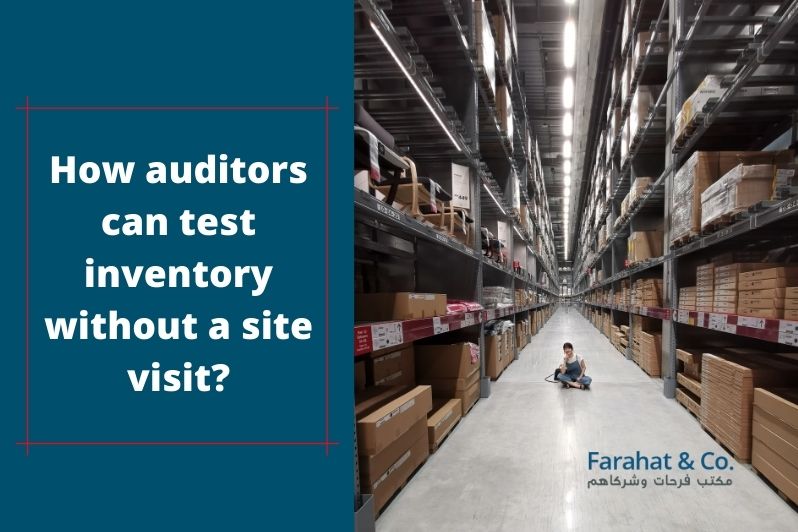In the wake of the global pandemic, Auditors strive to find effective, safe and viable methods to conduct inventory testing. whilst dealing with movement restrictions. Thanks to technology, conducting a remote audit has effectively reduced the proximity of health risks associated with Covid-19.
What is Remote Auditing?
Remote auditing involves using other techniques to conduct an audit without being physically present at the site. As Covid-19 limits movements and interactions, auditors are forced to implement alternative solutions to ensure that work is done accurately.
It is safe to say that future auditors are going to be more remote. Although remote auditing is showing a lot of promise, it does have some weaknesses that we will look at.
Read more... Inventory audit procedures
How to Conduct a Remote Audit
Videos/video conferencing:
More auditors have turned to video technology to carry out their audits. Videos do an excellent job of representing the eyes where one cannot be available physically. They allow an auditor to count and visually inspect inventory. However, videos have limitations since the auditor cannot touch or see more refined details on the inventory. For increased accuracy whoever holds the camera will need to adjust the angle as and when required by the auditor. Additionally, interacting with the inventory will provide an even better perspective.
Collecting additional evidence:
Video alone will not cut it if you want a more accurate audit. That is why you may need to find additional evidence like tracking transactions by conducting price testing. The good thing is, it is much easier to share supportive documents online. Price testing involves finding out the cost of buying and selling the inventory to block any loopholes that can lead to any discrepancies.
Carry forward:
If the client does not have any deadlines, an auditor can opt to roll forward the process to a more suitable date. With Covid-19 restrictions, it is not easy, let alone safe, to do any auditing job. Carrying forward the process means conducting the previous audit using data provided for the required period. The problem with rolling forward and rolling back is that the longer the restriction, the more the work an auditor needs to do.
Read more... How to Perform Audit for Inventory in UAE
The Ups and Downs of Remote Auditing
Remote auditing is viable and has already proved to be effective during this time of the pandemic. However, the fact that the auditor is not personally involved in the process can lead to some inaccuracy. This brings into play just how precise the person inspecting the inventory is performing their job. The more in line with an actual Auditor the employee is, the more accurate the information is going to be. Regardless of their skill level, it will still be hard for the Auditor to gauge if the inventory is real or if it has been in stock for an excessive amount of time.
Aspects such a video file size can be a problem if you have to record for lengthy periods of time. A great solution for this is to have the videos taken by a third party independent of the company in question.
Overall, you may find trying to make all these processes mesh together can be quite challenging especially during Covid-19. Some bodies do not acknowledge remote auditing regardless of their ability to get the job done.
For near-perfect remote audits, it is vital that the auditor acquires all the technological skills and know-how needed in order to minimize the chances of incorrect data. Currently, this is proving challenging for many people as they tackle a very steep learning curve.
Bottom line
Technology is shaping the future of every industry, and auditing is no different. Today, the world is heading towards a more efficient future where auditing expenses such as travel will no longer be a factor if remote auditing becomes a staple. Today, remote auditing is effective but has a long way to go before it is as good as an audit conducted by an auditor onsite.
One of the Top Auditors in the UAE
By law, every company is required to assign a licensed auditor that is registered under the Ministry of Economy for the auditing of their financial affairs. With over 35 years of experience, we at Farahat & Co provide a wide range of Auditing companies in Dubai give you an in-depth and concise overview of your business. This provides you with a realistic, no-filter view of your company's financial position.
Additionally, our team of experienced Auditors can dissect your company's financial operations and provide constructive, unbiased feedback. So what are you waiting for?
Call Farahat & Co.’s Auditing Team in UAE today and let us assist you in formulating a Remote Auditing structure tailored to your company’s needs. If you wish to make a booking, you can do so by clicking here


